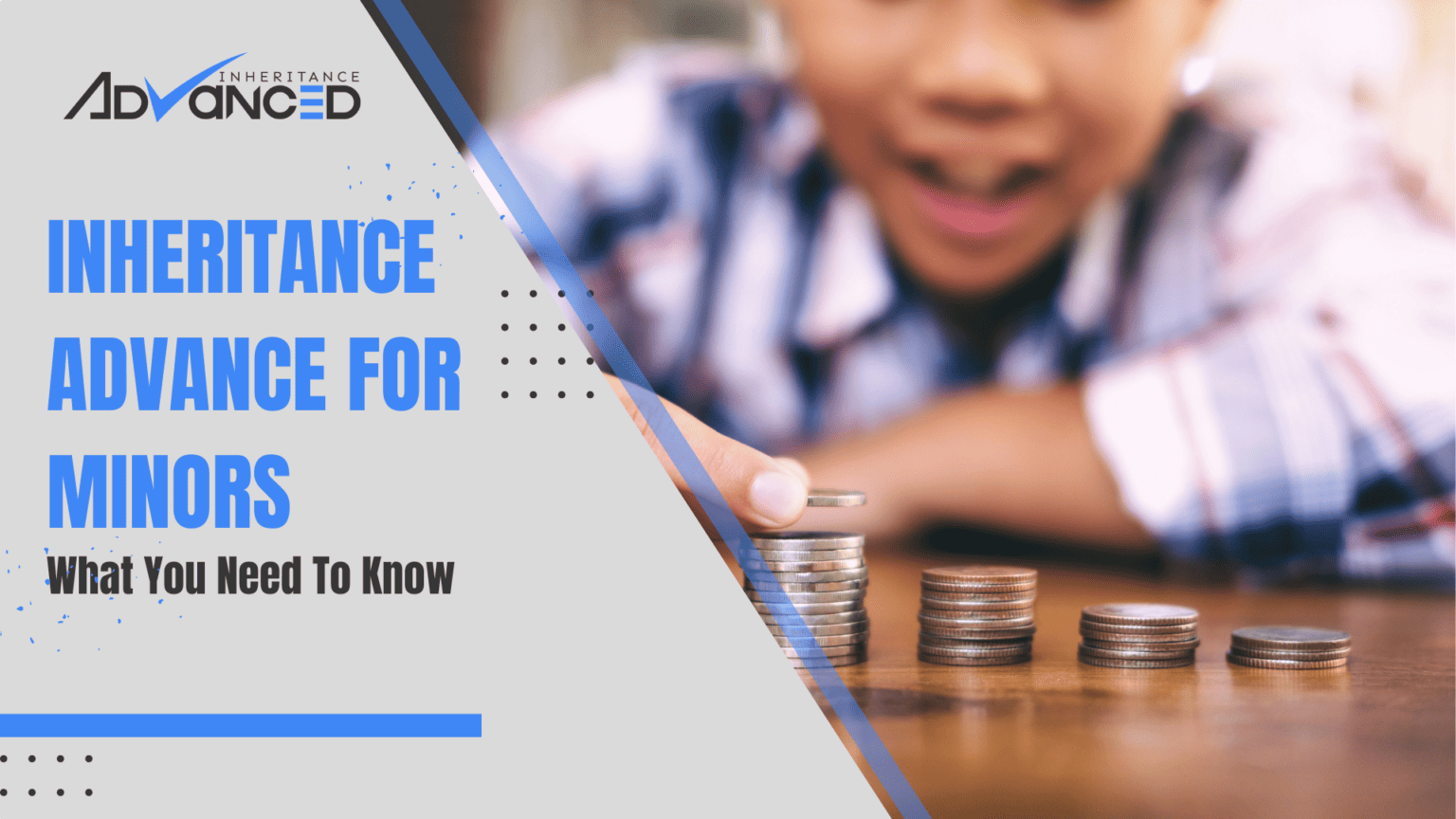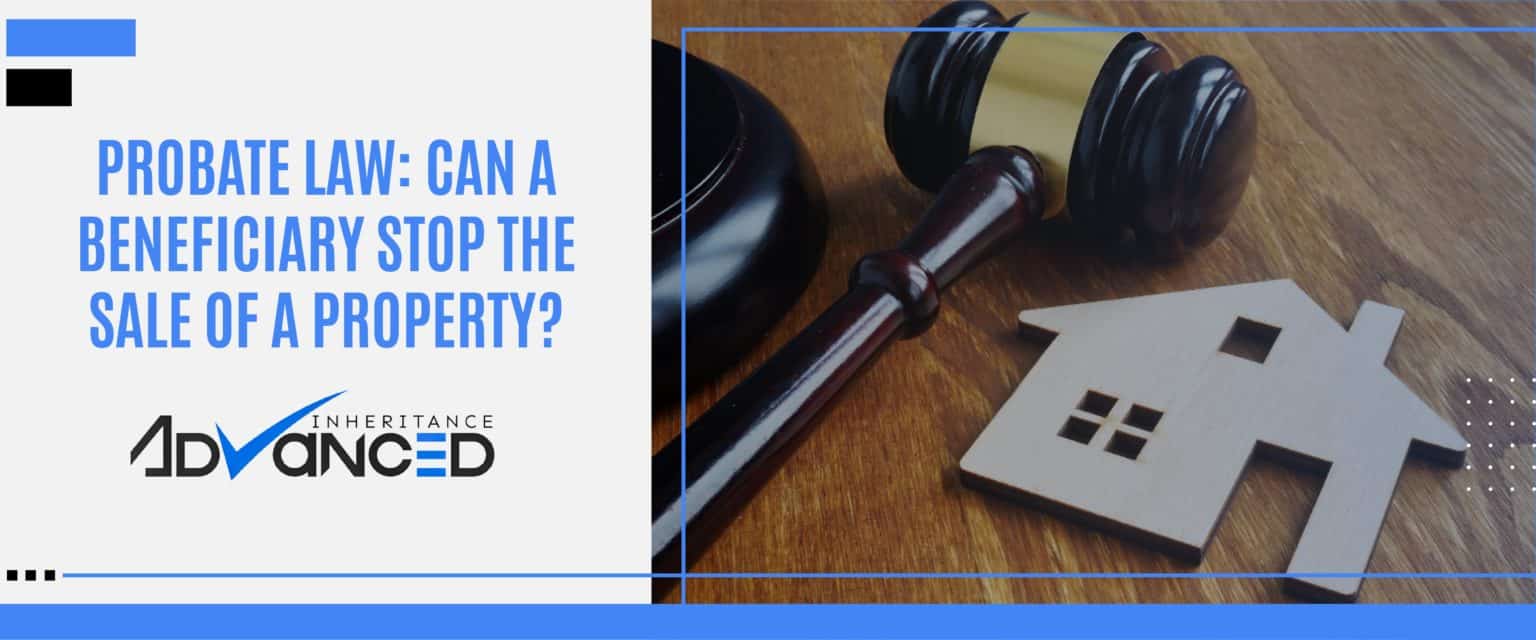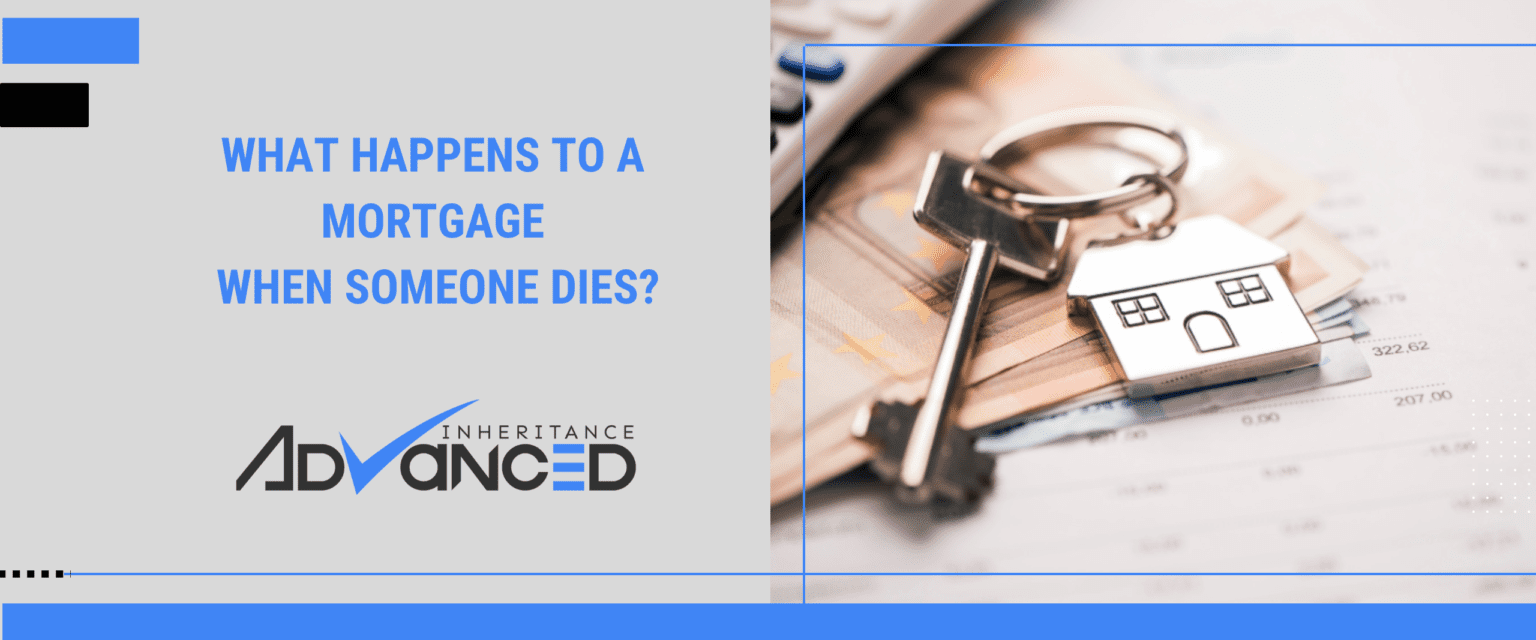Inheriting a home through probate can be tricky. Will you be assuming a mortgage on the home? Are you required to pay an estate tax on the sale of the house? Do you qualify for an exclusion? Do the new step-up in basis laws pertain to you? For all of these questions, it’s important to consult an attorney for a professional opinion but we have provided an in-depth overview to help. Add on top of all this that you are probably dealing with the passing of a loved one and also that the probate process timelines can vary based on lots of different factors and inheriting a home can turn into a headache.
There are many different ways in which you can inherit a house. None of these ways are happy times as most often it’s because you suffered the death of a loved one. Your parents, grandparents, aunts, uncles, or another close relative might have left their home or vacation home to you in their will. Being the beneficiary of a house is not as simple as one might think, especially when the house still has a mortgage.
Table of Contents
How Assets Are Handled Following Death
When a person dies, more often than not their assets need to go through the probate process. This process can last anywhere from six months to more than one year. The process also differs based on the state where the decedent lived. Probate court is the process in which the assets of a deceased person are distributed to their heirs based on what is written in the will. Before the assets can be distributed, the debts of the decedent must be paid off entirely.
It is possible that if the estate of the decedent was small and their debt was large. In this case, the creditors will demand that the real estate assets be sold for cash to settle the debts. If the decedent had enough in their checking or savings accounts, that money can be used to pay the debt and prevent the assets from being liquidated. In many states, the primary residence or homestead is credit protected meaning that creditors can not touch the home and you are not mandated to pay them back with the home.
Once the debts have been settled, the assets can be distributed to the rightful heirs. If one of those assets turns out to be real estate property, the beneficiaries of the estate become the owners after probate. The beneficiaries’ names are then added to the deed on the real estate after the probate settles. Or, if the will stipulates that just one heir becomes the owner of the property, that person becomes the sole owner. Heirs can decide to keep the property and share it, rent it, or sell it and split the proceeds. It’s best to handle these decisions with a level head and not make emotional decisions which can easily occur when a loved one passes.
The House Still Has a Mortgage
When there is a mortgage active on a property left to an one person in a will the entire distribution process changes. The probate court and attorneys involved in the probate process must take the lender into consideration. The wording from the original contract should be examined to determine the next steps. The next steps are based on the type of mortgage on the property (is it a reverse mortgage or a traditional mortgage?).
There are multiple options for you when you inherit real estate that has a mortgage, including the following:
- You can sell the house and use the proceeds to pay off the current mortgage and keep the rest as your inheritance
- You can keep the house in your name and use other money to pay off the mortgage
- You can keep the house and take control of the loan, making mortgage payments every month (this will lead to your name being added to the deed and to the loan paperwork)
- You can make payments on the mortgage as-is
The final circumstance is provided by the Consumer Financial Protection Bureau, which has a provision in place that allows a lender to name an heir as the new borrower of the loan without that heir going through the loan approval process.
What If There Is A Reverse Mortgage On The Home?
Reverse mortgages on a home can present more of a complicated estate matter. A reverse mortgage allows the borrower to avoid paying on the principal until they sell the home or until they move out of the home. Once either of those events happens, the balance is due to the lender.
The heir who inherits the home will be required to pay off the balance of the reverse mortgage in order to keep the home. The heir is also eligible to sell the home to pay off the mortgage debt on the real estate asset and keep any proceeds that remain to avoid a tough financial situation. Some get so overwhelmed by this difficult process of making payments that they allow the home to go into foreclosure. What many don’t know is that it’s so easy to get an inheritance advance, that this entire headache can be avoided.
What Happens If I Assume The Mortgage?
The first thing you should always do when inheriting a real estate is to find out if there is debt on the property and what type of debt it is (traditional loan or a reverse mortgage). The next piece of information you should seek is the current value of the real estate and the type of property. For instance, is the property a homestead or a rental property that pays for itself? These are important questions that will be relevant when you have to speak with the mortgage lenders and decide how to pay for the home. Once you have these two figures, you can make the decision about what you will do with the home. Should you keep it, rent it or sell it?
A real estate agent can help you determine the current fair market value of the home. The agent will also be able to explain to you how much value can be added if you decide to make some minor upgrades to the home (updated kitchen or bathroom, new carpet, a new roof, a finished basement, etc).
Along the way, you should determine the utilities that run to the building. Once you do, make decisions about either canceling them or paying them. If the real estate is going to sit empty for the foreseeable future, or you know you will sell it, you should cancel unnecessary bills. These bills include phone, internet, and cable. The heat, electricity, and air conditioning should remain active so that you can show the house to prospective buyers.
Inheriting a House without Mortgage
If you own a house with no mortgage, you have several options on what to do with it. Here are some suggestions:
- Rent it out: You could rent your property to generate passive income. You could rent it out on a long-term or a short-term basis through vacation rental platforms such as Airbnb.
- Sell it: If you no longer need the property, you could consider selling it. Selling the property could be a great way to free up cash or to downsize to a smaller home.
- Use it as a vacation home: You could use the property as a vacation home for yourself, your family, and your friends. This option would allow you to enjoy the property while keeping it as an asset.
- Convert it into a rental property: If you have skills in remodeling and renovation, you could convert the property into a rental property by adding additional units or bedrooms. This could help increase the rental income generated by the property.
- Use it as collateral for a loan: If you need to access capital for another investment or start a business, you could consider using your property as collateral.
Ultimately, deciding what to do with a house with no mortgage will depend on your circumstances, financial goals, and investment strategies. It is advisable to consult with a financial advisor or real estate professional before making any decisions.
Consider Any Other Heirs
There’s always the possibility that you are not the only heir to inherit the house. If you are one of two or more siblings, all of you might have been named as the heirs to the house. If this is the case, you will need to sit down and discuss the plan for the house with them. You won’t be able to make any decisions on your own since all of your names will wind up on the deed to the house.
Your siblings or other family members might want to sell the house and you might want to keep it. If this is the case, you will need to buy them out of their shares so you can become the sole owner of the house. If all of the siblings wish to keep the house, you will still need to determine how that is going to work out in terms of who uses the house, who cares for it, how the bills will be paid, and many other items.
This situation could wind up in court if all of the siblings cannot come to an agreement on their own. When family issues head to court it often creates a rift between the siblings. Do your best to work towards an agreement without the court so the family ties remain strong.
Financing an Inherited Home
Should you inherit a home and are not qualified to pay the interest rates, you may have to take out your own loan and won’t be able to take control of the existing mortgage. Most mortgages are given the the original borrower who had good credit and the mortgage lender will take a look at your credit score before allowing you to assume the debt. Good credit and a strong income should enable to you obtain a loan to pay off the remaining mortgage. If not, you may have to seek a loan modification by applying with the assistance of a co signer. If that is not on option, then an inheritance advance may be a great option to get money right away.
Your other option in this scenario is to sell the home, pay the balance of the mortgage, and then use the remaining proceeds to buy a home you can afford. If the home is large and something you don’t need or cannot afford, your best bet is to sell the home, especially if you cannot afford the property taxes.
Frequently Asked Questions For Heirs that Inherit The Family Home
What is a Due on Sale Clause?
Typically, when someone purchases a property and obtains a mortgage, there is a due on sale clause included in the contract. This clause means that when the house is sold to someone else, the balance of the mortgage must be paid immediately before the title for the house can be transferred to the new owner. The new owner is required to obtain their own loan and is not allowed to take control of the existing mortgage.
Laws were changed in 1982 to protect heirs inheriting real estate related to the due on sale clause. Prior to the federal law change, many lenders used to interpret the law as meaning that the balance on the mortgage was due as soon as the owner died. The law now permits the heir to take control of the existing mortgage and keep it. The law doesn’t apply to every situation, which is why it’s important to speak to an attorney and a financial advisor before making any decisions.
Do I need a good credit score to take over a mortgage?
A good credit score is essential when taking over a mortgage. When you take over a mortgage, you essentially assume responsibility for the outstanding loan balance and agree to make the remaining payments on the mortgage.
However, under guidance from CFPB (Consumer Financial Protection Bureau), borrowers are advised to allow the beneficiary to carry on with the mortgage using the same parameters and terms. The person inheriting the property is added as an obligor and pays the mortgage without further assessments of credit score or loan history.
Note that a good credit score indicates a history of responsible borrowing and repayment, and lenders are more likely to approve your application if you have a solid credit history.
A good credit score also helps you secure better interest rates and terms for the mortgage takeover. If your credit score is low, you may be required to pay higher interest rates, which can significantly increase the overall cost of the loan.
You more than likely inherited a house with a lot of items still inside. Furniture, artwork, pictures, clothes, collections, tools, and other items need to be divided among the heirs or sold with the proceeds divided among the heirs.
This is a highly contested issue since it is under debate right now with the current presidential administration. The answer is yes, you will be responsible for paying taxes when you are inheriting a house in the amount of the appraisal of the property at the time in which you inherit it and the price you ultimately sell it for. Tax implications are changing in the United States and you may be responsible for tax from the time the property was originally bought until you sell it. This is referred to as getting rid of the step up in basis and could substantially increase your inheritance tax on the inherited house.
For instance, if the inherited house was originally purchased in california in 1950 for $20,000 and it’s now worth 3million, you may be responsible for paying taxes on the difference between $20,000 and the $3million that you sell it for. At this point, everything is just speculative since no changes have been signed into law. You might not have to pay taxes if you sell the home as your state law dictates or if you sell it within the first year of owning it. You should speak with an attorney to understand how the law applies to your situation.
The executor or personal representative of the probate is responsible for handling the taxes and any other expenses that arise. They are the custodian until you inherit the property.
It depends on whether or not there are multiple heirs to the inherited home. Hopefully, the decedent answered a lot of potential questions in their estate planning. Prior to selling the home, you will need to consider if any repairs should be made to add more value. You also need to consider the loan balance on the inherited real estate because outstanding debt needs to be paid off first before any proceeds can be divided among heirs and then you may have to pay capital gains tax as well.
It’s a good idea to contact the lending company after you’ve inherited a home. Let them know you are the heir and provide them with documents that prove the borrower died. The lender will tell you how to continue making mortgage payments so that there is no lapse.
If you are not the executor of the decedent’s estate, you won’t be responsible for the property until it is officially passed to you once the probate settles. If you inherit property, the executor should be responsible for handling the mortgage loan if the estate has liquid assets. The executor is also responsible for continuing to pay the mortgage debt and any bills associated with the home until it is passed to you.
In 2018 a law was passed that protects heirs that assume a mortgage loan after a borrower passes. While, the law is complex in nature and varies from state to state, it does provide consumer protections to beneficiaries. You should speak with an attorney regarding how your state handles consumer financial protection. The highlight is that in 2018, the CFPB enacted a rule protecting family members who inherit a home with a mortgage. The mortgage lenders are required to identify and work with successors, who get the same federal protections that the original borrower had. This includes the right to be fully informed about the account
Inheriting a home with a mortgage balance can cause financial stress. Financial stress, tax implications and remaining other assets split with multiple heirs can be a lot to deal with after a loved one passes. If this process is weighing on you, Inheritance Advanced is standing by. We wait for probate so you don’t have to. We can provide immediate funding assistance to help make the process easier. Schedule a free evaluation today!
Resources:
- https://www.lendingtree.com/home/mortgage/options-when-inheriting-house/
- https://www.rocketmortgage.com/learn/who-is-responsible-for-a-mortgage-after-the-borrower-dies
- https://www.americanfinancing.net/mortgage-basics/inheriting-real-estate
- https://www.alllaw.com/articles/nolo/wills-trusts/what-happens-mortgage-inherited-real-estate.html
- https://homeguides.sfgate.com/happens-inherit-property-mortgage-46728.html









